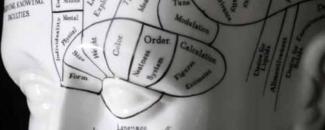Statistics show that approximately one-third of hiring decisions are regretted. Alarmingly, these hiring mistakes can cost a company up to three times that employee's annual salary. Therefore, it is no surprise that in addition to the traditional methods of selection (such as the interview and résumé checks), employers are now looking for alternative means of increasing their knowledge about potential employees before making final hiring decisions. Annika Demasi, Managing Consultant, Beilby Consulting, looks at one such method – psychometric testing.
Psychometric assessments are objective and standardised tools that measure some psychological construct through the use of behaviour samples. These tests provide employers with unique information about an applicant's job-relevant strengths and weaknesses that are otherwise unobtainable via traditional methods of recruitment. Psychometric tests may reveal information such as:
- how well suited an applicant is to the position or the organisation
- a candidate's cognitive ability and personality
- the candidate's ability to work in a team or work autonomously
- how well an applicant handles stress
- how sociable and enthusiastic a candidate is, and
- how motivated an applicant is.
This information can then be used in the recruitment process to:
- screen out unqualified applicants at the initial stages of selection (to reduce costs)
- categorise prospective employees according to probability of success on the job, or
- rank a group of candidates according to merit.
What do psychometric tests assess?
Generally, there are two broad areas that psychometric tests assess: 1. personality tests are used to measure an applicant's relatively stable behavioural tendencies and preferences within an organisational setting, and
2. cognitive ability or aptitude tests are used to measure intelligence and ability, to determine if an applicant is capable of doing the job.
Using both personality and cognitive ability tests is often recommended as they complement one another and increase the validity of the assessment process. The following section will briefly describe these broad areas in more detail.
However, before proceeding, it is important to note that within each of these two broad areas, many different types of psychometric tests are available. Each type of psychometric test is specifically designed to assess and measure a specific construct (for example, personality or verbal reasoning or critical thinking). Taking this into account, you must also keep in mind that each job vacancy is characterised by different key competencies necessary for job success.
Therefore, in order to tap into the relevant job-related competencies, psychometric tests must be selected appropriately (for example, those related to key skills and abilities necessary for a particular job). As a result, psychometric testing should only ever be used as one component of the entire selection process; it should be used in conjunction with other selection tools to generate a comprehensive profile of each applicant.
Personality tests
Personality refers to a person's distinct set of characteristics (way of thinking, feelings and behaviours) that determine how they generally act. In terms of selection, personality will inevitably influence one's job performance as it determines how a person will interact within the work environment. Personality tests are systematic procedures that are designed to assess these intricacies. These tests are often untimed, and are based on one's own opinions, actions, reactions, behaviours, thoughts and feelings; of how they perceive their self to be. Therefore, there are no correct or incorrect answers.
Many personality tests are designed to measure the five-factor model of personality. This model dictates that there are five broad dimensions of personality to which all individuals exhibit in differing degrees. Moreover, individuals have a tendency to exhibit one of these dimensions more strongly than the others. These dimensions include:
- conscientiousness – careful, thorough, dependable, achievement oriented and hard-working
- neuroticism – prone to embarrassment, emotional and shows signs of anxiety, anger and insecurity
- agreeableness – courteous, forgiving, tolerant and trusting
- extroversion – sociable, assertive, talkative and active
- openness to experience – imaginative, cultured, original and intelligent.
Personality and the selection process
So, how does knowing someone's personality improve the selection decisions? It can do so in three main ways. First, it can reveal whether the candidates personality type is a good fit for the job and to the company culture. Second, research indicates that specific personality traits can predict job success as indicated by job performance. Particularly, conscientiousness dictates how hard-working, persistent and achievement-oriented one is; and neuroticism indicates one's ability to cope with stress of hazardous conditions or emotionally demanding work.
Finally, for each job, an 'ideal’ personality profile can be generated based on key competencies for that job. For example, in occupations whereby constant interactions are required, candidates who are high on extroversion and agreeableness are most suited.
Cognitive ability or aptitude tests
Cognitive tests are used to assess a person's intelligence and ability. According to one of the most widely accepted theories of intelligence in psychology, a person's overall general intelligence (‘g’) is determined by two different types of abilities.- Fluid intelligence is the ability to think and reason abstractly and solve problems. This ability is not learnt, but intuitive. Fluid intelligence is used in jobs where employees must come up with problem-solving strategies, are required to learn new skills quickly, must integrate new information quickly, and must be able to think strategically.
- Crystallised intelligence is the ability to learn from past experiences and relevant learning, and to apply this to new situations. This ability is based on facts and rooted in past experiences and thus is learnt. Crystallised intelligence is required on jobs that need comprehending of written reports and instructions, production of reports, and the use of numbers as a tool to make effective decisions.
Once again, there are many different types of test that tap into each of these abilities – and again, job analyses will dictate which abilities are most important to job success. For example:
- for fluid intelligence, abstract reasoning, and problem solving tests
- for crystallised intelligence, verbal reasoning, numerical reasoning, spatial reasoning, mechanical reasoning and comprehension tests.
Benefits of psychometric tests
There are many benefits of incorporating psychometric tests in the recruitment process. This includes benefits for both the organisation and for the candidate.Benefits for the organisation
• They are fairly accurate as most tests contain inbuilt measures and checks that identify when candidates are dishonest. • They provide information which may have been difficult to infer or obtain from other selection tools such as the interview. • They provide objective data and are free from bias; thus selection decisions are legally defensible.
• They generally have strong predictive validity (in terms of job performance). The better that applicants do on these tests, the better their performance is on the job.
• They are fairly cost-effective. Psychometric tests are fairly inexpensive and thus are ideal long- term solutions.
• They are often perceived to be fair methods of assessing performance.
Benefits for the candidate
Candidates are selected if they’re right for the job and the organisation thus they are often: • happier and satisfied with their job • more motivated and committed to the organisation, and • more willing to stay with the company.Do psychometric tests actually work?
In short, yes, psychometric tests do work. However, with that said, it will only work if the assessments used are psychometrically sound. In order for this to happen, five conditions must be satisfied. 1. Standardised – tests should be administered and scored using standardised procedures and standards. 2. Objective – the test must be objective so that it is not influenced by the administrator's personal preference. 3. Valid – the test must be validated to ensure that it measures the characteristic which it sets out to measure. 4. Reliable — the test must be reliable and consistent to ensure minimal error. 5. Discriminating – the test must be discriminating such that it can clearly show differences between individuals on behaviours that are tested.
Research shows that, when psychometric assessments meet these five conditions, they are often one of the best predictors of job performance in the workplace – beating traditional methods such
as assessment centres, unstructured interviews, reference checking and years of job experience and education.
In addition, combining numerous selection methods increases how well we can predict future job performance. Specifically, research shows that the best methods of predicting job performance is to either administer cognitive ability and structured interviews together; or administer cognitive ability and work samples together.
Therefore, in order to gain as much information as possible about a candidate; it would be most useful to combine psychometric assessments with a variety of other selection procedures such as interviews, reference checking.
Concluding remarks
To conclude, psychometric assessments are valuable tools in the recruitment process. When tests are standardised, objective, valid, reliable and discriminating, they provide employers with unique information about an applicant's job-relevant knowledge, skills and abilities; that otherwise cannot be obtained via traditional methods of selection. Furthermore, as these tests are fair and objective, it ensures a legally defensible approach to selection. In this article, two main types of psychometric assessments were discussed – cognitive ability tests and personality tests. It is important to emphasise that each job position has different key competencies that are necessary for job success (as defined by job analyses). Therefore, different combinations of psychometric tests are needed in order to tap into the corresponding abilities.
Even so, psychometric tests do not reveal information about all the job-relevant knowledge, skills and abilities out there. Therefore, it is important to remember that psychometric testing should only ever be used as one component of the whole selection process. Further, rather than basing selection decisions purely on one form of assessment; decisions should be made after an assessment of all relevant modes of assessments.
With all this done, psychometric testing adds value to the recruitment process – it will increase the chances that you will hire the correct person for the job, first time.
Annika Demasi
Managing Consultant, Beilby Consulting
Annika Demasi can be contacted on (61) 8 9323 8888 or by email at annika.demasi@beilby.com.au.
This article was first published in the February 2013 issue of 'Keeping good companies’, the journal of Chartered Secretaries Australia. Reprinted with kind permission of the publisher.



